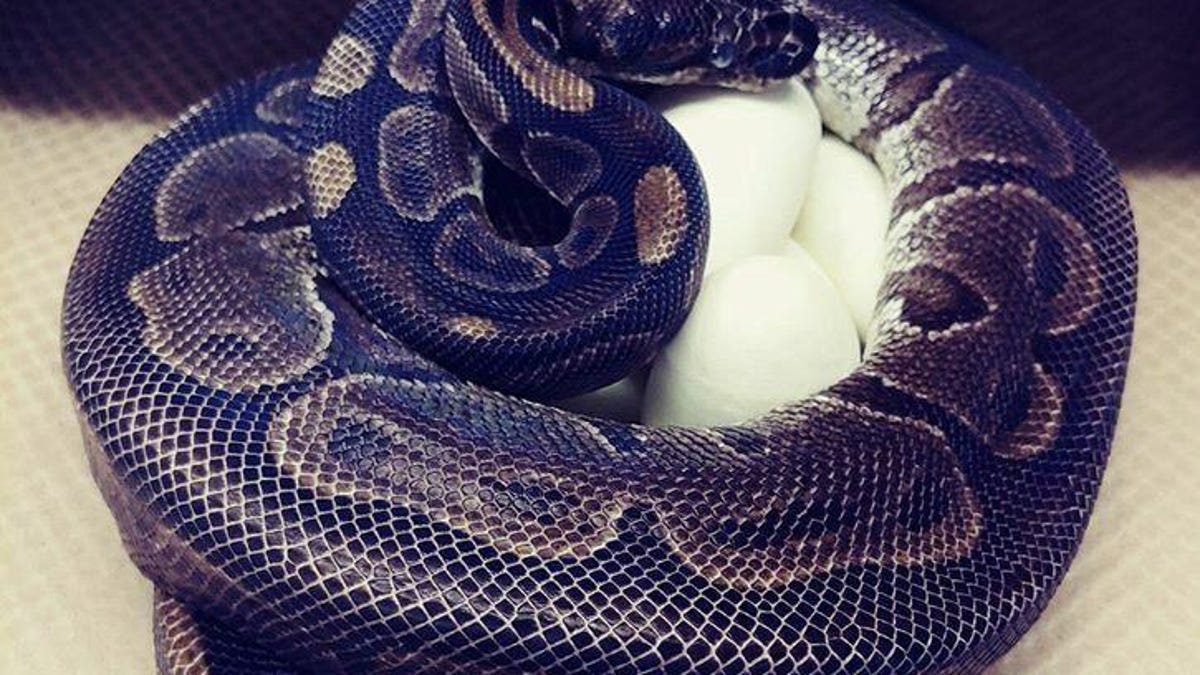Snake surprise: Female python lays eggs without being near a male in years
The 62-year-old female snake living at the Saint Louis Zoo laid eggs without having to mate with a male.

This 62-year-old female ball python snake proves even older snakes can still become mothers.
When zookeepers at the Saint Louis Zoo looked in on their oldest female snake, they were surprised to find her coiled around a clutch of newly laid eggs -- especially surprised since she hadn't been near a male snake in more than 15 years.
The ball python, which is estimated to be 62 years old, has been a resident of the zoo since 1961. She laid seven eggs on July 23, which was a bit of a shock to the zoo's manager.
"She'd definitely be the oldest snake we know of in history," to lay eggs, Mark Wanner, the Zoological Manager of Herpetology, told AP News.
Here are the miraculous eggs laid by the 62-year-old snake.
The female snake doesn't have a name, and is only referred to as number 361003. She's one of two ball pythons at the zoo. The other python snake is a 31-year-old male that isn't kept near the female snake.
"It was a surprise," Wanner told CNN. "We didn't expect her to drop another clutch of eggs, honestly."
Ball pythons, which normally dwell in Africa, are known to reproduce asexually. Females snakes store sperm to fertilize at a later date, but at 15 years, this could be the longest documented case of a snake waiting.
According to Wanner, before this incident, the longest case of a snake holding onto sperm for fertilization was seven years.
Two of the eggs are undergoing genetic testing to determine for sure whether they were reproduced asexually or sexually. Two more eggs have died, but the other three are being incubated to keep them safe.
"If they continue to live and continue to develop, we expect hatching to be in the next two to three weeks," Wanner said. "We've got our fingers crossed that one of these animals will hatch, but we don't know for sure."
In 2009, the same Saint Louis Zoo python laid a different batch of eggs, but none of those eggs hatched.

